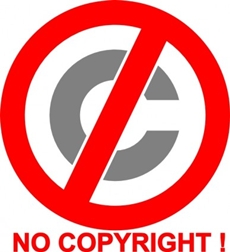US court rejects copyright case against Google
19 Oct 2015
Google won a decisive victory on Friday in a copyright-infringement case that the Authors Guild originally launched almost a decade ago.
 A US federal appeals court ruled that the company's book-scanning project, which has turned millions of books into searchable digital files, is entitled to the full protection of the ''fair use'' clause in copyright law.
A US federal appeals court ruled that the company's book-scanning project, which has turned millions of books into searchable digital files, is entitled to the full protection of the ''fair use'' clause in copyright law.
The case is hugely important, not just for Google (now part of a larger holding company called Alphabet) and the authors whose works are being digitized, but for the principle of fair use itself.
Copyright law is murky and difficult to pin down at the best of times, but interpreting the concept of fair use is often even trickier.
That is because what qualifies as fair use - which theoretically lets anyone use copyrighted content without having to get permission from the creator or rights-holder - isn't specifically spelled out in federal copyright law. It's something that ultimately has to be decided by a court, and even then the judges have to consider four factors before they can come to a decision.
Those factors are - the purpose of the infringing use, specifically whether it qualifies as ''transformative''; the nature of the original content (i.e., whether it is artistic or commercial); the amount and ''substantiality'' of the original content that is used in the derivative work; and whether the infringing use will affect the market for the original product or content.
What is interesting about the Google case is that this isn't just some random website using an animated GIF of a football game - as happened recently with Deadspin, which got the site's Twitter account suspended briefly. This is a $450-billion web giant copying millions of books, and then using them in part to feed its massive, money-spinning search empire.
The part about Google being a multibillion-dollar entity was clearly what caused the Authors Guild to fight the case for so long - arguably long after it had already become obvious that it would probably lose. For the Guild, this was a classic case of David versus Goliath, with book authors representing the David character and Google the clearly evil Goliath using the work of others for its own purposes.
The appeals court, however, pointed out in its decision that the purpose of copyright law is not to guarantee authors a living, nor is it to give them exclusive control over who uses their work and how.
The purpose of the law is to provide an incentive for people to create artistic works because doing this benefits society - and ultimately, the social benefit of Google Books outweighed the infringement aspect.



















